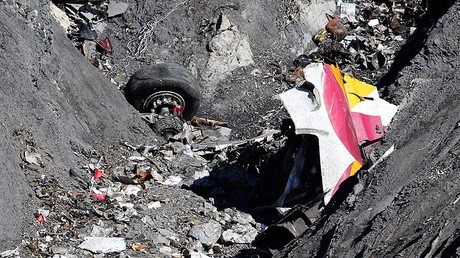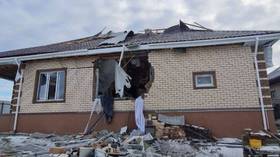80 families of victims sue US flight school for not checking health of Germanwings pilot

The families of those killed in the March 2015 Germanwings plane crash in the Alps have sued the US flight training company for not examining co-pilot Andreas Lubitz’s medical issues thoroughly enough.
On March 24, 2015, Lubitz deliberately locked the flight’s captain out of the cockpit, and flew the aircraft into the mountains. All 150 people onboard Germanwings flight 9525 were killed.
The relatives of the deceased have been looking into the Lubitz’s training in the US, and are now launching a case against the Airline Training Center of Arizona in Phoenix.
The center belongs to Lufthansa, and Germanwings is part of the group.
Getting a pilot medical certificate was no easy task for Lubitz. German authorities refused him twice for his history of depression. In the end they issued a certificate with restrictions: should Lubitz have a relapse of depression, the certificate was to become invalid.
It has emerged that while training in Europe, Lubitz was suspended from his course for some 10 months due to depression. In 2010, he came back to Lufthansa with letters from medics citing his health was no longer a concern.
Lubitz was subsequently sent to the US for training, and the families of the crash victims argue that the Airline Training Center of Arizona didn’t screen his medical history properly, or else they would have noted his severe depressive episodes.
The center’s officials would also have seen that Lubitz had been treated with the kind of medication that would have ruled him out of flying an aircraft, the suit added.
Finally, Lubitz's behavior while at the flight school should have concerned the authorities, the suit concludes, without giving further detail.
“Lubitz’s particular history of depression and mental instability made him a suicide time bomb, triggered to go off under the ordinary stresses of life, particularly the kind of stresses a commercial pilot routinely faces,” attorney Marc C. Moller representing some 80 families said.
It’s a well-known fact that depression tends to recur, and no one can predict when it will happen, Moller added.
READ MORE: Lubitz final confession: Germanwings co-pilot feared going blind, barely slept
This is just the latest in a series of scandals linked to the Germanwings co-pilot: a month ago, it emerged that Lubitz had been referred to a psychiatric clinic due to a possible psychosis only a fortnight before the tragic crash.
Also, he had been prescribed powerful antidepressants and sleeping pills.
Last month, it also became known that Lubitz wrote to his physician just before the crash, saying he barely slept and feared going blind.
Over the five years prior to the crash, Lubitz had visited over 40 different doctors, many of whom realized he had a serious mental disorder, yet they didn’t inform the authorities of his condition.
According to the toxicological report, Lubitz was on medication during the fatal flight, with traces of sleeping pills and antidepressants discovered in his hair and body. One of the drugs found in Lubitz’s remains, Zolpidem, reduces concentration and driving ability, and two others – Citalopram and Mirtazapine – are prescribed when having suicidal thoughts, although health authorities in Dusseldorf state: “The risk of suicide may increase at the beginning of treatment [with these drugs].”













